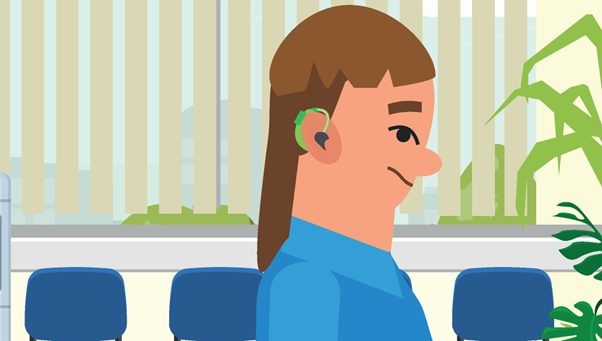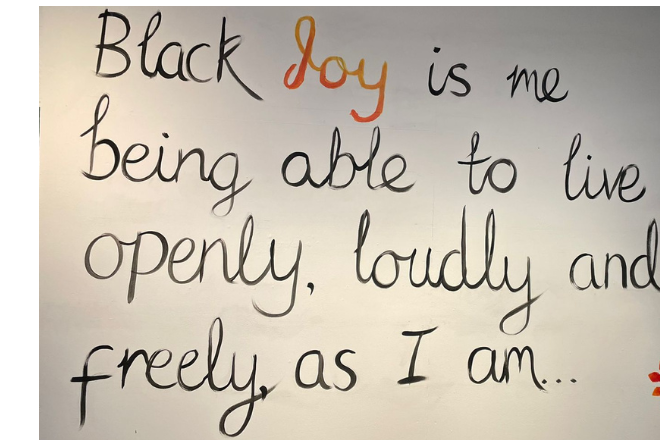Decisions, decisions, decisions…. They’re on our minds a lot at the moment, particularly how – and who – makes them for Co-Production Collective. If you haven’t already, you might want to read our previous blog Who, how, what, when? Decision making in co-production, to catch-up on how we’re currently doing this and why we think it needs to change. This is going to be an ongoing process of co-creation for us, but one question stood out as particularly pressing – how do we decide who we work with?
As you might know, Co-Production Collective’s core funding from Wellcome Trust is currently due to come to an end this September. That means that we’re looking at different ways to sustain ourselves – ‘Planning for the Future’ is one of the four co-created ambitions in Our Direction 2020-2022.
Our funding model is still a work in progress but is likely to be a continuation of how we’re working at the moment: receiving funding for specific projects (such as with NHS England and NHS Improvement); delivering training and consultancy for internal or external partners (such as on UCL’s Mental Health Science PhD programme); and being costed into bigger funding bids in partnership with individuals or other organisations.
It’s really exciting to explore potential new partnerships and develop activities which encourage others to co-produce, create real impact, and help build the case for co-production across different sectors and settings. So far, the projects we’ve worked on have been clearly aligned with our values, mission and vision. But what if we get an opportunity which isn’t so clear-cut? How can we be sure we’re making important decisions with financial implications in a way which is accountable, transparent, and in which the rest of the Co-Production Collective community can be confident?
As ever, a co-creation session is where we started! 30 people joined us on Zoom at the end of March to begin exploring this together.
Co-creating questions
We started by thinking about three imaginary potential partners – a big business, a grassroots community group and a public sector organisation – and used these to explore the considerations we’d want to take into account when deciding whether to take funding from or partner with each one.
This led to a wide-ranging conversation which touched on lots of different themes, including:
- Whether or not we should have any ‘red lines’ (things that we always say ‘no’ to)
- The importance of the attitude and motivation of potential partners
- The importance of being able to develop trusting relationships
- The need to mitigate any potential risks to our reputation, community or future work
- Questions around potential reach, impact and sustainability of projects
We’d like to say a big thank you to everyone who contributed to such a thoughtful and in-depth session, even if we did all leave with more questions than answers! Nevertheless, one thing was clear – our values have to underpin everything we do, no matter who with or in what context. We can’t change ourselves to fit in with others, but also shouldn’t rule out partnering with those who aren’t already working in a co-produced way. We all have to start from somewhere, and a shared commitment to being human, inclusive, challenging and transparent provides strong foundations for change.

A new co-producer’s perspective
Winston, Community Partner at Fulfilling Lives Lambeth, Southwark and Lewisham, was one of the co-producers at the session and shares his reflections below.
The content and small group discussions were insightful, thought provoking and enjoyable. To engage and connect with people who share your passion is always a bonus.
Not having worked in management, finance or funding and being invited into the space to share our thoughts and ideas how the Collective should pursue their funding and partnerships was a testament to great co-production and co-creation practices!
However, there have been some questions I have been wrestling with since leaving the session. What is the criteria we use to draw a line and invite, engage or dare I say partner with organisations that had very bad practices by today’s standards but were legal during their earlier operations?
Are the values that we hold onto as charities and Community Interest Companies not strong enough to engage with an organisation with a “questionable” past or a cloudy present? Are we so afraid as a sector to even venture to work with such companies in order to highlight their bad practices by demonstrating the benefits of our way of doing things? Is this tension or debate that is on the horizon really about companies that do not meet our values or is it the charities who might not be able keep to the values that are boldly stated on value and mission statements?
As a sector big on creating better practices, good practice is usually deployed in places where there is bad or failing practices. How can we then share this learning with others if we constantly overlook them for the very same behaviours and practices that need changing?
Having a blanket policy of rejecting funding or denying partnering with organisations who might sit outside our values is not beneficial to anyone, in my opinion. Partnerships, sponsors and longer-term funding should be negotiated so that we at least are allowed to demonstrate the benefits of our better practices within those organisations and sectors.
This is the reality we live in but it is a reality that can be changed for better. After all at the heart of co-production and co-creation is creating a better way of doing things. The fact that the Collective is starting to explore and ask these questions is refreshing.
To be honest I was not sure what I had signed up for when I registered for the session, but I certainly left with more hope.
Where next?
There’s lots more thinking to be done about this and other aspects of our decision-making structures and processes. We’re going to be taking the time to really go through the issues and ideas raised during the co-creation session and explore how we can begin to pull them together for further co-creation around funding and partnerships. We’ll also continue thinking about the bigger picture – our governance and accountability structures – and how we can co-create something which is better suited to where Co-Production Collective is now, and where we’re heading. That includes who is involved in decisions, so keep an eye out for a co-creation session on this topic in June.
If you have experience or ideas around governance, accountability and decision making within co-production or other ‘non-traditional’ ways of working, then we’d love to hear from you! This work is challenging and as with co-production itself, can only be stronger if we include the perspectives, expertise and experience of others. Please get in touch with us: coproduction@ucl.ac.uk




.png)
.jpg)


.png)
.png)

.png)

.png)